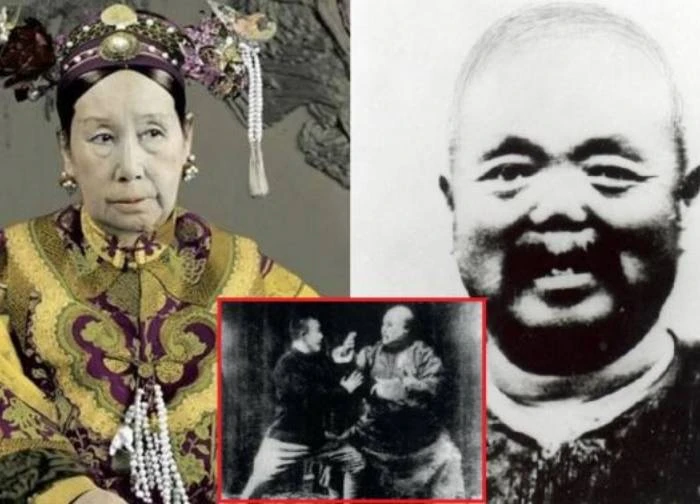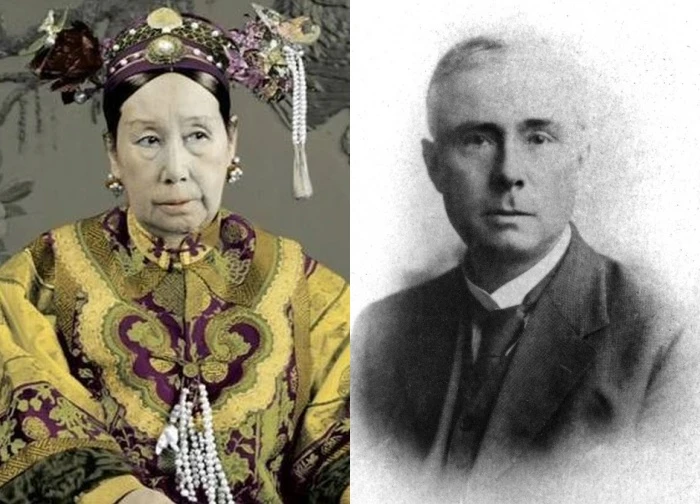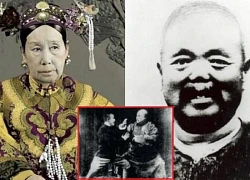The ship that disappeared in 1913 suddenly appeared, revealing the "mysterious" truth deep under Lake Huron

4 | 0 Discuss | Share
Catherine the Great was born in 1729 with the birth name Sophie Friederike Auguste, in the Pomeranian region of the Kingdom of Prussia (now in Poland). She came from a German noble family.
Following the aristocratic trend of the time, she received an education from a French tutor. In addition to German, she was also fluent in French, the common language of the European upper class in the 18th century. She built her image as a tomboy (a style of dressing like a man) in her youth and trained herself. to master swordsmanship.
Writing in her life memoir, Catherine the Great said her childhood was quite peaceful. "Nothing makes me feel interesting," she said.
Although she was born into a noble family, her parents were not wealthy. The reason her life had a big turning point later was because her maternal relatives were rich. For German noble families with no real power like Sophie's, an advantageous marriage was one of the best means to promote the family's interests.
In 1739, at the age of 10, she met her future husband, Peter III, grandson of Tsar Peter the Great. In 1742, Peter III was appointed as his successor by his aunt, Russian Queen Elizaveta Petrovna.
Writing in her memoir, she said her first impression of Peter III, who was one year older than her, was not very positive, and even found it "hateful". But Sophie caught the eye of Russian Queen Elizaveta Petrovna, who at that time wanted to find a wife for her grandson who would later succeed the throne.
This marriage was expected to strengthen the relationship between the Kingdom of Prussia and the Russian Empire. But Sophie's mother, Joanna Elisabeth, was initially strongly opposed. History records that Joanna felt jealous when her daughter had the potential to become the most powerful woman in Russia.
Despite opposition, the wedding between Sophie and Russian crown prince Peter III took place in 1745. She was 16 years old at that time.
A year before the wedding, Sophie was taken to Russia for the first time to get used to her new living environment. Thanks to her strong personality from a young age and not being afraid of confrontation, she seemed to adapt quickly.
She knew how to please the Russian Queen at that time, Elizaveta Petrovna, as well as find ways to make a good impression on the Russian people.
Without feeling guilty about having to live in a society where people speak a different language than in her home country, Sophie studies Russian day and night. She studied languages actively, staying up late to study in her bedroom. The first winter she lived in Russia, she suffered from pneumonia due to the harsh cold and had to have blood transfusions many times.
She also proactively converted to Eastern Orthodoxy despite her parents' objections. But this helped her to be especially loved by Queen Elizaveta Petrovna, considered as her own child.
In her memoir, Catherine the Great said her motivation for learning Russian was her willingness to do everything necessary to integrate into the new environment, so she could become a powerful woman in the future.
Over the years, although she became fluent in Russian and could speak like a native speaker, her mixed German accent could never be eliminated.
Not long after moving to Russia, she changed the name Catherine (Yekaterina in Russian). During the solemn wedding, her father, because he opposed his daughter's conversion, did not go to Russia to attend the wedding.
Like her first impressions when meeting her future husband, Sophie experienced an unhappy marriage. According to European historians, the couple "neither had similarities in thinking nor shared interests."
Historian Janet Hartley commented that while Peter III was "rude and immature", Sophie was a strong person and especially loved European culture.
These differences cause both parties to seek intimacy elsewhere. Peter III once openly had a lover, but she later caused controversy when she said her only son with her husband was the result of an affair with her ex-boyfriend. But later, she corrected herself by saying that boy Paul was her child with Russian Tsar Peter III.
The unhappy marriage is considered the driving force that motivated Sophie to pursue more ambitious goals. She constantly cultivates her intelligence, thinking that constantly learning is the way for her to surpass her husband, Smithsonian magazine, a publication of the famous Smithsonian Institution in the US, said.
Catherine the Great once said: "If I had a husband whom I could love, I would not have a negative attitude towards him." Not accepting her fate of estrangement, she built relationships with other officials and nobles in Russia. She also associated herself with political groups that tended to oppose Peter III.
The conflict between Peter III and Sophie became even more evident after her husband became Russian Tsar in 1762, after the death of Queen Elizaveta Petrovna.
From the first days, Peter III considered ending the marriage and banning Sophie from appearing in public, Smithsonian magazine said.
Not accepting such a fate, Sophie took advantage of the time to attract allies to launch a coup to overthrow her husband.
In her memoirs, Catherine the Great once said: "All his (Peter III's) actions led to madness." By seizing the throne, she believed that she was the one to "save Russia from the disasters caused by the weak leadership of Tsar Peter III".
Historian Janet Hartley said in the Smithonian magazine: "Peter III had an extremely erratic temper. Such a Tsar's leadership in Russia would sooner or later lead to riots. I think that Catherine the Great felt the instability in future, so she proactively grabbed power."
In July 1762, Sophie gave a speech at the palace alongside close officials and nobles to persuade the army to turn against the Tsar. She declared herself empress of Russia, becoming Catherine the Great.
During her reign, Catherine the Great helped keep the Russian Empire's budget always in a state of abundance, improving people's lives. The Queen is also extremely interested in developing community services and education. Many public libraries have been opened across the country to find talented people for the country.
However, there were critics who criticized Catherine the Great for her harsh absolute monarchy. In 1785, she issued a policy of "privileges for the aristocracy", ensuring all rights and privileges for the upper classes in society. This is one of the reasons why some peasant uprisings broke out even though they were unsuccessful.
On November 17, 1796, after 34 years in power, Catherine the Great died mysteriously at the age of 67. Only when she died, Paul - her son with Tsar Peter III, could succeed the throne.
Terrified, the husband plots to harm his wife every day, the truth is revealed through a hidden camera  Gia Nhi15:28:52 26/02/2024The incident is making the online community shocked and scared by the seriousness of the story. The husband's poisoning behavior was handled and clarified by the authorities thanks to the hidden camera installation.
Gia Nhi15:28:52 26/02/2024The incident is making the online community shocked and scared by the seriousness of the story. The husband's poisoning behavior was handled and clarified by the authorities thanks to the hidden camera installation.

4 | 0 Discuss | Share

4 | 0 Discuss | Share

3 | 0 Discuss | Share

0 | 0 Discuss | Share

0 | 0 Discuss | Share

1 | 0 Discuss | Share

4 | 0 Discuss | Share

4 | 0 Discuss | Share

2 | 0 Discuss | Share

2 | 0 Discuss | Share

4 | 0 Discuss | Share

2 | 0 Discuss | Share




1 | 1 Discuss | Report